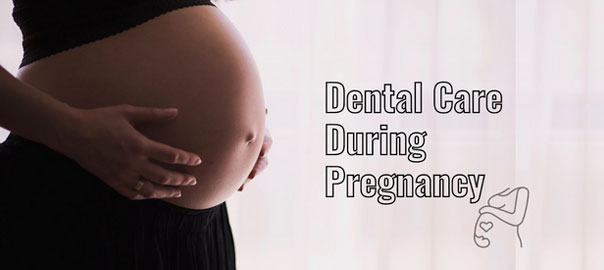
How Does Pregnancy Affect Your Dental Health?
Pregnancy is an absolutely beautiful period but, at the same time, extremely changing for women. Pregnant women mainly take great care and precautions regarding their health during this particular period. However, with all due respect to the overall health, the attention given towards dental health might not be much. Some of the reasons behind various dental problems that women encounter during pregnancy include hormonal level change, increased blood supply to all parts of the body, and dietary habits. Moving on further, let’s see how pregnancy can affect oral health as well as give some useful tips about maintaining good dental hygiene during such a time.
Hormonal Changes and Oral
- 1. Other alterations in the oral cavity take place during pregnancy, but this time, due to hormonal imbalance. With increased levels of estrogen and progesterone, the blood supply to the gums is augmented. This may cause them to swell, become tender, and bleed easily.
- 2. This is known as pregnancy gingivitis and tends to afflict nearly every pregnant woman. In addition, pregnant women are predisposed to gum infections, such as periodontal diseases, due to hormonal changes. This makes a woman aware of these hormonal imbalances and takes preventive measures concerning oral health.
Morning Vomiting Nausea and Oral Health
- 1. Morning sickness also impacts oral health. More frequent vomiting exposed the teeth to acids in the stomach, led to erosion on enamel surfaces, increased sensitivity, and led to enamel erosion with higher risk. To keep the impact of morning sickness away from oral health, after vomiting, rinse your mouth with water or fluoride containing mouthwash.
- 2. Waiting for at least 30 minutes before brushing can also prove helpful. Brushing the teeth right after vomiting spreads the acid and makes the enamel worse. A higher fluoride content in toothpaste, accompanied by consultation from a dentist for further preventive measures, should be taken.
Cravings and Dental Health
Everybody is familiar with pregnancy cravings, and of course, indulging in some occasional treats is normal. On the other hand, however, one needs to remember their impact on oral health. That is, cravings often take place by adding products with sugars, which may cause tooth decay or cavities.
It may also lead to problems concerning dental care due to over-snacking throughout the day. The good news, however, is that cravings could be satisfied with healthier alternatives in the form of fruits, vegetables, and dairy products in order to infuse the mother and baby with the adequate nutrients both need to survive.
Keeping herself healthy and the baby healthy by eating a balanced diet, portion control, and rinsing the mouth after indulging in sugary or acidic products at least could minimize these detrimental effects on oral health.
Oral Hygiene During Pregnancy End
Routine checkup and cleaning by the dentist go a long way to maintain good oral health. Dental visits during pregnancy are strictly safe, and a woman should let the dental care provider know about pregnancy before scheduling the appointment.
This would make dental complications easy to detect so easy prevention. Routine cleaning will also prevent plaque formation and the condition of gingivitis which may culminate from that. X-rays should only be done when really necessary; appropriate shielding has to be in place when the x-rays are taken to minimize risks.
Oral Hygiene During Pregnancy
Good oral hygiene during pregnancy can be achieved by diligent oral hygiene. The mother-to-be must brush their teeth twice a day with fluoride toothpaste and a soft-bristled brush. She should also floss the teeth to get rid of the plaque and food particles caught between the teeth and the gumline daily.
Oral hygiene during pregnancy may be maintained by gargling with water or fluoride mouthwash to reduce the accumulation of acid. Morning sickness will subside when the pregnant mother also feeds on a healthy diet consisting of calcium and vitamin D, which will result in healthier teeth and bone development in the baby.
Pregnancy: the one great gladdest and most crucial period in the life of a woman but also, the most brilliant time where dental health should be given full priority. Understanding the unique challenge pregnancy poses on oral health and the preventive measures undertaken helps the expectant mother keep a healthy smile throughout her pregnancy and enables her to achieve the best possible dental outcomes for both herself and the baby inside. Healthy pregnancy from the mouth upwards!
Leave a Reply
Leave a Reply
Explore More Similar Posts
Explore More Blogs


Leave a Reply